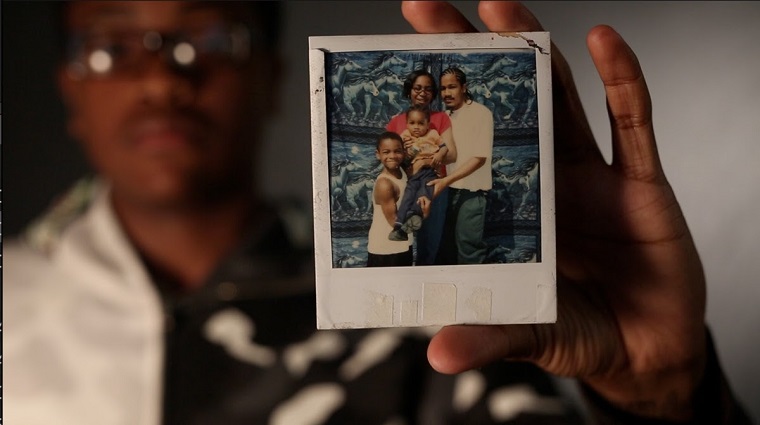
AFSC's Liberation Summer Camp works with youth directly impacted by the criminal justice system and/or immigration policies. Ibis Productions
For weeks, the headlines have been dominated by stories of children getting ripped away from their parents at the border. I, like so many others, was heartbroken to see images of families being torn apart, and to hear the audio of detained children crying. And I was outraged when – instead of reversing the “zero tolerance” policy that created this crisis –Trump signed an Executive Order allowing for the indefinite detention of entire families.
But my outrage didn’t stem from shock. In fact, it all felt horrifyingly familiar.
Every year, I meet way too many young people who have been separated from their parents through the violence of incarceration – scores of Black and brown kids put in "the system" due to the excessive arrests and mass incarceration of their mothers and fathers.
There are approximately 2.7 million children in the U.S. with an incarcerated parent. Why? Some parents are locked up in jails because they can’t afford to pay bail – a system that penalizes people who can’t afford to buy their own freedom. Some are incarcerated because of policies that treat drug addiction and mental illness as matters for the criminal legal system rather than as public health issues – despite decades of evidence that incarceration exacerbates these problems rather than alleviating them. And some parents are incarcerated due to draconian, punitive sentencing policies, like harsh mandatory minimums and three strikes laws, that condemn people to a status of permanent exile rather than creating pathways for healing and transformation.
These policies – like the manufactured crisis at the border – are not inevitable. They are deliberate choices made by those in power to prioritize political expediency over collective wellbeing.
Unfortunately, family separation and detention are embedded deep in this country’s history.
Heartbreaking accounts from former slaves describe the brutality of children being torn from their arms and sold to the highest bidder, of family ties intentionally broken to make resistance to slavery more challenging. And even after emancipation, many children were designated as “orphans” despite having living parents, and forced to work for their former enslavers.
In the late 19th century, the U.S. government began an aggressive campaign to “assimilate” native children. Over the following decades, as many as 100,000 native children were forced into “Indian boarding schools,” operated by the Federal government and various religious institutions, where they faced physical and emotional abuse.
Family detention also has a long and ugly history in this country, perhaps most notably during WWII, when thousands of Japanese-American families were incarcerated in internment camps.
The numbers are staggering. Over 11,000 children detained at the border currently in immigration detention, nearly 100,000 native children sent to boarding schools, more than 60,000 children of Japanese heritage interned, upwards of three million African children kidnapped and sold into US slavery, and over 2,000 children born in prison each year taken from their mothers.
Racism, nationalism and xenophobia fuel these acts today just as they did in every decade since this country’s founding. And we continue to tacitly accept family separation by sending millions of people into a prison system rooted in isolation and confinement.
For many years, I have worked with young people who are separated from loved ones, running a “Liberation Summer Camp,” which brings together young people who have been directly impacted by the criminal and/or immigration systems. Some participants have incarcerated parents, others have undocumented family members facing deportation, and some are personally entangled in these systems of injustice themselves. But whatever their contact with the system, I hear familiar stories about the pain and struggle of family separation.
When women give birth in prison – many of whom are still forced to do so in shackles – their newborns are taken from them almost immediately. Many of these children are funneled into a broken foster care system, which itself becomes a vehicle to send those same young people to prison. And many incarcerated parents have their parental rights terminated, making reunification with their children even more difficult.
Kebby Warner, who was incarcerated while pregnant, writes for the website Women and Prison: A Site for Resistance: “At that time I wondered how I would feel after I had to leave my baby. I used to lay on my bunk at night feeling her more, talking to her or reading a children’s book I found in the library. I couldn’t imagine the day I wouldn’t feel her more or couldn’t talk to her anymore. When that day came, I was desperate.”
The answer to family separation is not locking families in cages, whether we call that detention, incarceration, or internment. Instead, we need to challenge the laws and policies that criminalize parents – in particular poor people of color – in the first place. We stand with those who are targeted by immigration enforcement because we know that the success of our movements are intimately linked.
To end family separation, we need to uproot the systems of mass incarceration and mass detention, systems that decrease the safety and wellbeing of our communities. Policies that force children apart from their parents are a devastating part of our past, and a terrifying part of our present. We must make sure they are not part of our future.